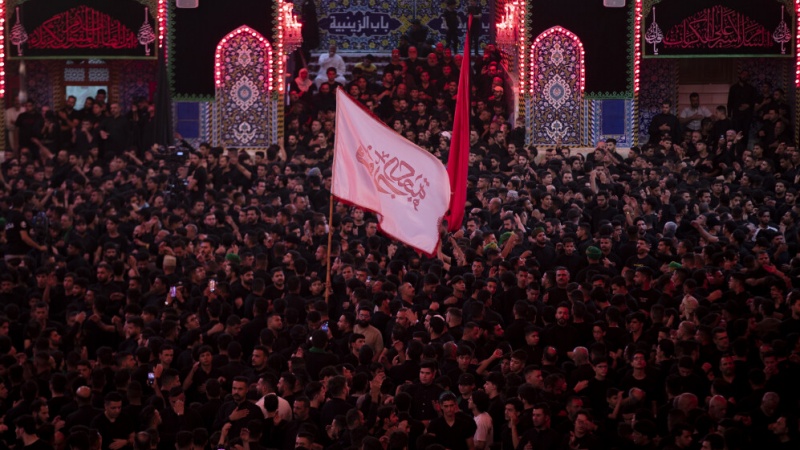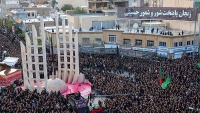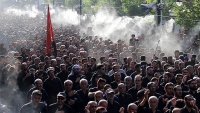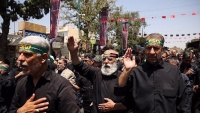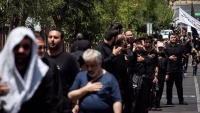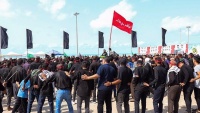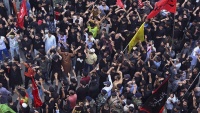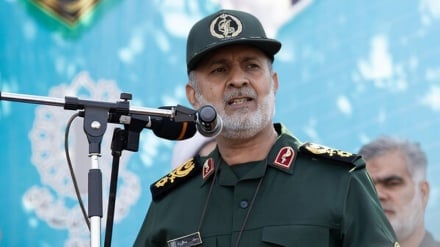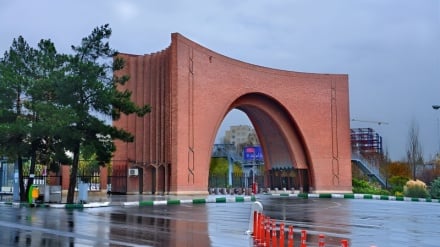Devotees attend mourning processions in millions to mark Tasu'a
Millions across Iran and other countries are taking part in nationwide processions on Tasu'a, which marks the ninth day of the lunar calendar month of Muharram and precedes Ashura.
Muslims hold mourning ceremonies during the first 10 days of Muharram to remember Imam Hussein (AS), grandson and the 3rd infallible successor of Prophet Muhammad (SAWA), and his 72 companions, who were martyred in Karbala, Iraq.
During the ceremonies, eulogists recite the events of the Battle of Karbala and the scholars elaborate on the underlying messages of Imam Hussein's (AS) stance against tyranny.
The highlight of the processions in Iran, however, is Ta'zieh, a national and religious dramatic musical performance that is mostly used to narrate the story of the martyrdom of Imam Hussein (AS) and his companions in Karbala.
Ta'zieh was registered on the United Nations Educational, Scientific and Cultural Organization (UNESCO) list of the Intangible Cultural Heritage of Humanity in 2011.
Mourning ceremonies are held across the world, including in Lebanon, Bahrain, Azerbaijan, Pakistan, Afghanistan, India, and the Indian-controlled Kashmir as well as Nigeria.
This year's processions in Kashmir are being held after a 33-year ban was lifted. They are the first since the state government imposed a ban on the religious ceremonies in the Muslim-majority Himalayan region in 1990, the year after an armed revolt against Indian rule erupted there.
Top police officers and administrators walked alongside mourners, who marched through the streets of the capital Srinagar, beating their chests and waving flags, following several rounds of negotiations between officials and clerics to allow the march to proceed.
“This is a dividend of peace,” the city's top administrator Mohammad Aijaz told reporters after the procession concluded without incident.
This year's procession was by far the largest in a generation, and the first time many of those who joined were allowed to participate.
Authorities allowed the procession on condition that mourners would not shout slogans demanding independence or display any references to “banned organizations.”
SS
